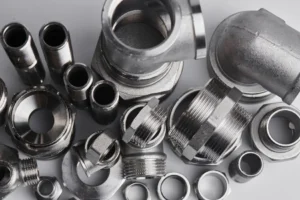The United Arab Emirates (UAE) has become a thriving center for industrial growth, featuring extensive infrastructure initiatives and a lively manufacturing sector. Integral to this growth are industrial equipment suppliers, companies that provide machinery, parts, and technical services critical to sectors such as construction, oil and gas, manufacturing, and logistics. Exploring careers with industrial equipment suppliers in the UAE offers promising opportunities grounded in practical experience and dynamic professional growth.
What Is the Role of Industrial Equipment Suppliers in the UAE?
At their core, Industrial Equipment Suppliers in UAE play a key role in helping businesses acquire, rent, and maintain essential machinery and tools needed for smooth operations across industries. Their product portfolios range from heavy construction equipment like cranes and forklifts to specialized tools such as hydraulic systems and power generators.
These suppliers not only provide the machinery but also offer:
- Technical support and maintenance services.
- Logistics coordination for timely deliveries.
- Training for operating equipment safely and efficiently.
- Collaboration with multinational manufacturers and local industries.
For professionals, this means working in sectors where technology meets hands-on application, offering valuable real-world experience in complex industrial environments.
Why Consider a Career with Industrial Equipment Suppliers in the UAE?
Several factors make careers in this sector attractive:
- Robust Demand: Ongoing mega projects focused on infrastructure, energy diversification, and industrialization increase the demand for equipment and skilled professionals who can manage and operate it.
- Diverse Career Paths: Opportunities vary widely, from technical roles like mechanical engineers and field technicians to commercial roles such as sales engineers and procurement specialists.
- Hands-on Experience: Employees engage directly with advanced machinery, develop stronger problem-solving abilities, and gain exposure to global supply chains.
- Competitive Compensation: Many companies offer attractive salary packages, training programs, and career development paths.
- Key cities such as Dubai, Abu Dhabi, and Sharjah feature concentrated industrial zones, creating central hubs that support industry growth and enable professionals to move easily between roles and locations.
Key Career Roles and Responsibilities
The sector offers a range of positions, each requiring specific skills and offering unique growth paths for progress. Below is a detailed overview:
| Role | Typical Responsibilities | Required Skills | Career Growth |
| Sales Engineer | Client engagement, equipment specification, and closing deals | Technical aptitude, communication, and CRM skills | Senior Sales Manager → Regional Sales Director |
| Field Service Technician | Equipment installation, troubleshooting, and maintenance | Mechanical skills, problem-solving, and customer service | Service Supervisor → Technical Operations Manager |
| Procurement Officer | Supplier negotiation, purchase management, and inventory control | Negotiation, ERP systems, vendor management | Supply Chain Manager → Procurement Director |
| Mechanical Engineer | Designing support, technical problem solving, and quality assurance | CAD software, engineering knowledge | Project Engineer → Engineering Manager |
| Logistics Coordinator | Scheduling shipments, inventory monitoring, and warehousing management | Organizational skills, ERP proficiency | Logistics Manager → Operations Director |
Geo Focus: Where Are the Most Opportunities in the UAE?
The UAE’s industrial equipment supplier companies operate primarily within these key hubs:
- Dubai: Featuring large industrial areas like Al Quoz and Jebel Ali Free Zone.
- Sharjah: Home to Hamriyah and other industrial free zones.
- Abu Dhabi: Hosting key industrial activity in areas like Musaffah and MAQTA Gateway.
- Ajman & Ras Al Khaimah: Emerging sectors offering logistics and fabrication roles.
These locations are centers for multinational companies, equipment rental firms, and service providers, making them hotspots for job seekers.
Real-World Experience: What You Can Expect on the Job
Working for an industrial equipment supplier in the UAE involves dynamic, often hands-on roles that blend technical expertise with customer interaction. Some realities include:
- Collaborating with project managers and engineers on-site.
- Troubleshooting unexpected equipment failures under time constraints.
- Coordinating shipments and vendor services across international borders.
- Adapting to evolving technologies such as automation and AI in machinery.
- Taking part in safety and compliance training aligned with both UAE and global standards.
This surrounding experience equips professionals with skills highly valued across industrial sectors globally.
How to Enter the Sector and Advance Your Career
Here are practical steps to start or enhance your career in this sector:
- Pursue Relevant Qualifications: Degrees or diplomas in Mechanical, Electrical, or Industrial Engineering are highly favorable. Earning certifications in supply chain management or equipment operation can greatly improve your chances of getting hired. These credentials make you stand out in the job market and demonstrate your specialized skills to employers.
- Gain Technical and Soft Skills: Familiarity with ERP, CAD software, negotiation, and communication is vital. Fluency in English is mandatory, and Arabic adds an advantage.
- Internships and Trainee Programs: Many suppliers offer internships and graduate training schemes ideal for fresh graduates.
- Networking and Industry Events: Attend trade fairs like The Big 5 or Gulfood Manufacturing to connect with employers.
- Target Companies Directly: Leading firms such as FAMCO, Kanoo Machinery, Al Shirawi, and Al Bahar often have dedicated career portals with updated job listings.
Career Outlook in 2025 and Beyond
The UAE continues investing heavily in infrastructure, renewable energy, and industrial diversification. Government strategies, such as the UAE Vision 2021 and Dubai Industrial Strategy 2030, promise sustained demand for heavy machinery and related services. Automation and digital transformation are also reshaping operational models in equipment supply, enhancing efficiency but increasing the need for skilled, adaptive workers.
Summary Box: Key Skills and Qualifications for Industrial Equipment Supplier Careers
| Category | Details |
| Educational Background | Mechanical/Electrical/Industrial Engineering diplomas or degrees |
| Technical Skills | ERP systems, CAD tools, equipment operation certifications |
| Soft Skills | Communication, negotiation, and problem-solving |
| Experience | 2-5 years relevant industry or internship experience |
| Certifications | OSHA/HSE safety, crane or forklift operation licenses |
| Languages | English mandatory; Arabic a plus |
| Additional | A valid UAE driving license is often a key requirement for field-based roles, as it allows professionals to travel between sites and meet on-site operational needs efficiently. |
FAQ :-
1. Industrial Equipment Suppliers in UAE Careers and Salaries?
Salaries for careers at UAE industrial equipment suppliers range widely: entry roles offer AED 3,000–5,000/month, while engineers and project managers earn AED 7,000–25,000/month, depending on experience.
2. Is industrial engineering in demand in the UAE?
Yes, industrial engineering is in demand in the UAE, driven by growth in manufacturing, logistics, automation, and the increasing use of specialized components such as metal bellows. Projects like Operation 300bn are accelerating opportunities in this field, especially as sectors rely more on advanced equipment and precision-engineered products like metal bellows for efficiency and process optimization across industries.
3. How many companies are in Dubai Industrial City?
Dubai Industrial City hosts over 1,100 companies across various sectors, including F&B, logistics, and manufacturing, making it one of the UAE’s largest industrial hubs that supports industrial growth.
4. What skills do industrial engineers need?
Industrial engineers need skills in process optimization, data analysis, Lean Six Sigma, CAD, project management, and problem-solving, along with strong communication and critical thinking abilities.
Closing Thoughts
For professionals seeking meaningful and growth-oriented roles, careers with industrial equipment suppliers in the UAE offer unmatched opportunities for skill development and real-world impact. The sector’s intersection of technology, logistics, and client service ensures a dynamic workplace that adapts to the UAE’s ambitious industrial agenda.
Whether you are a fresh graduate stepping into the workforce or a seasoned professional looking to pivot, the industrial equipment supplier space in the UAE presents a compelling career path grounded in innovation, hands-on experience, and sustainable growth.








